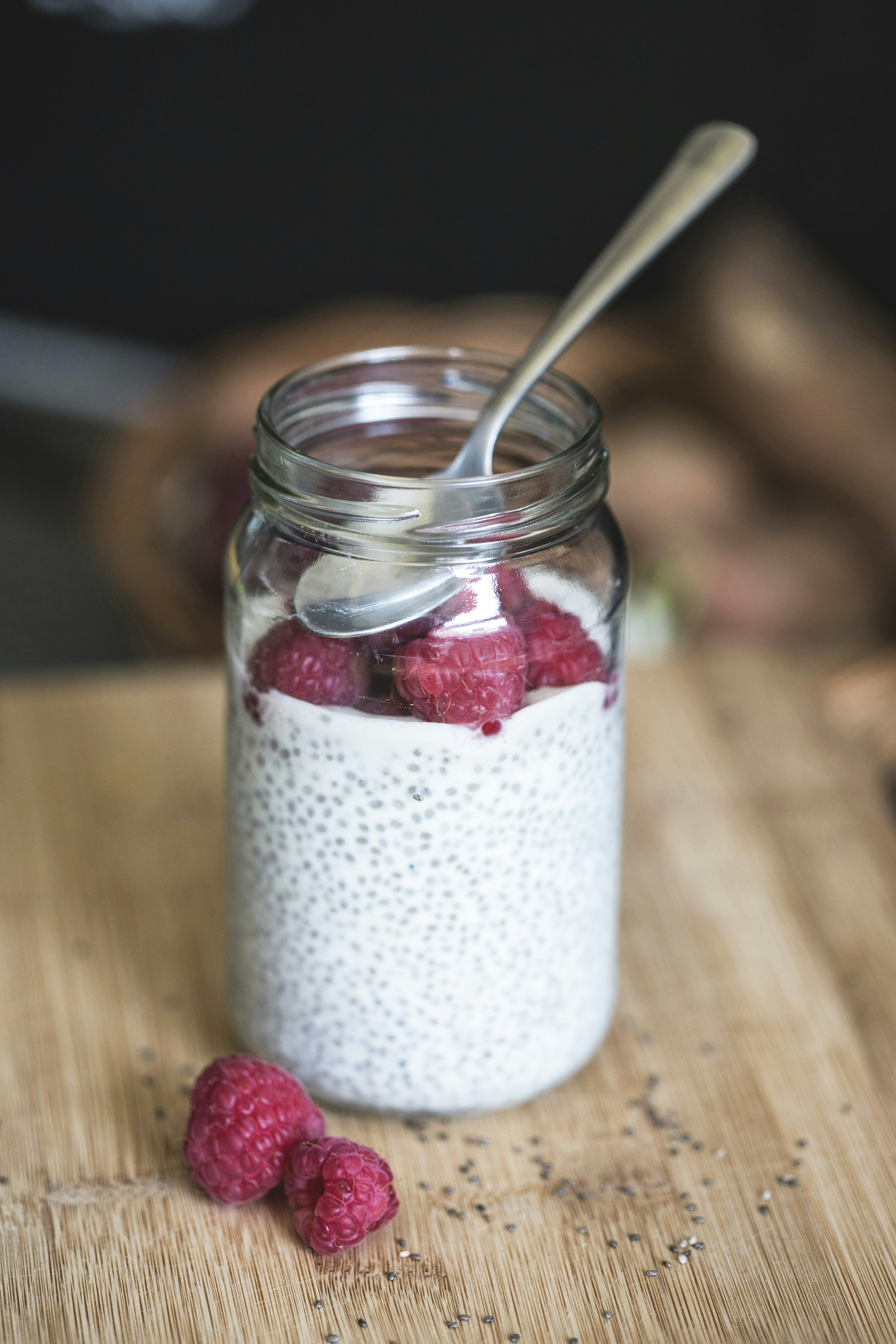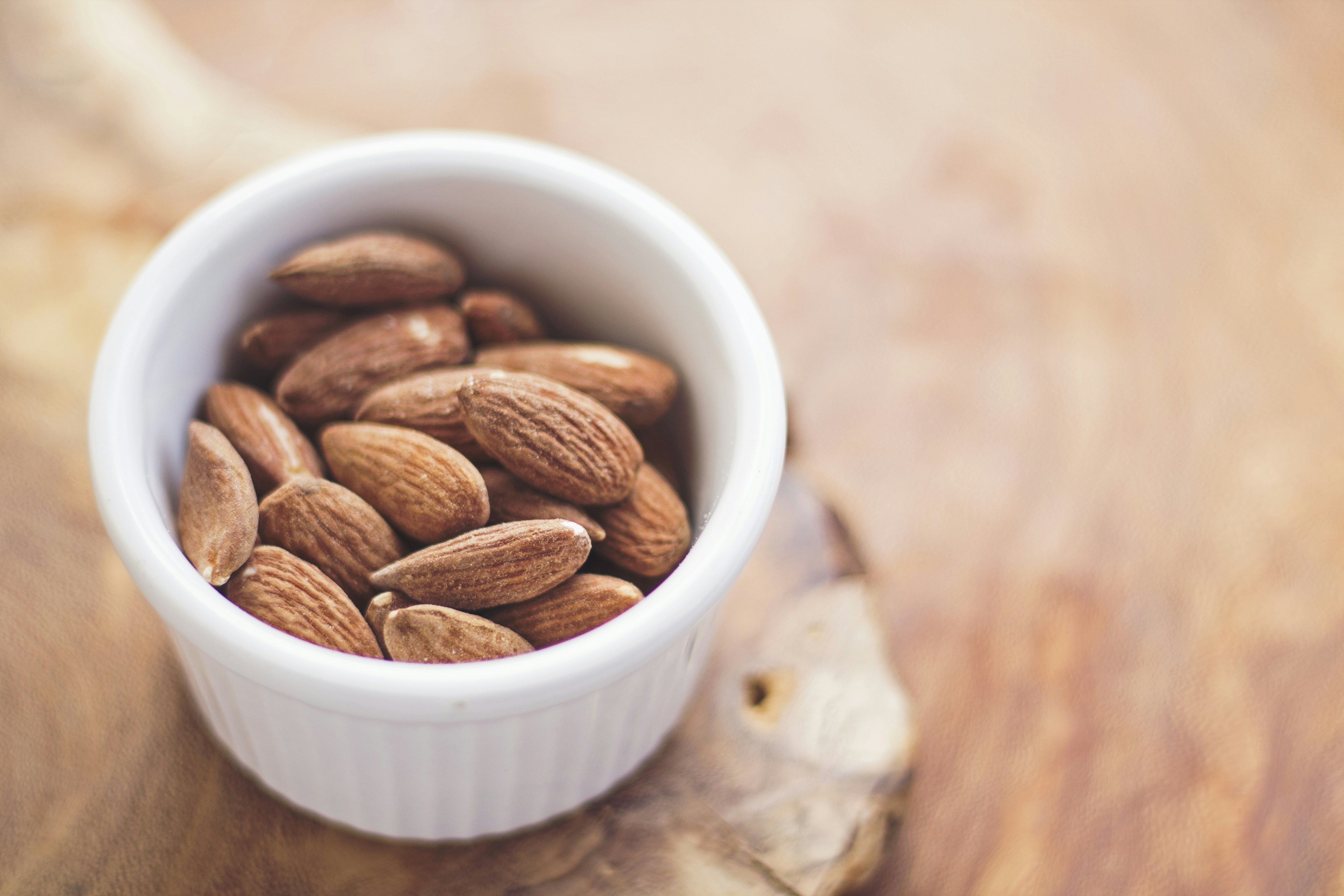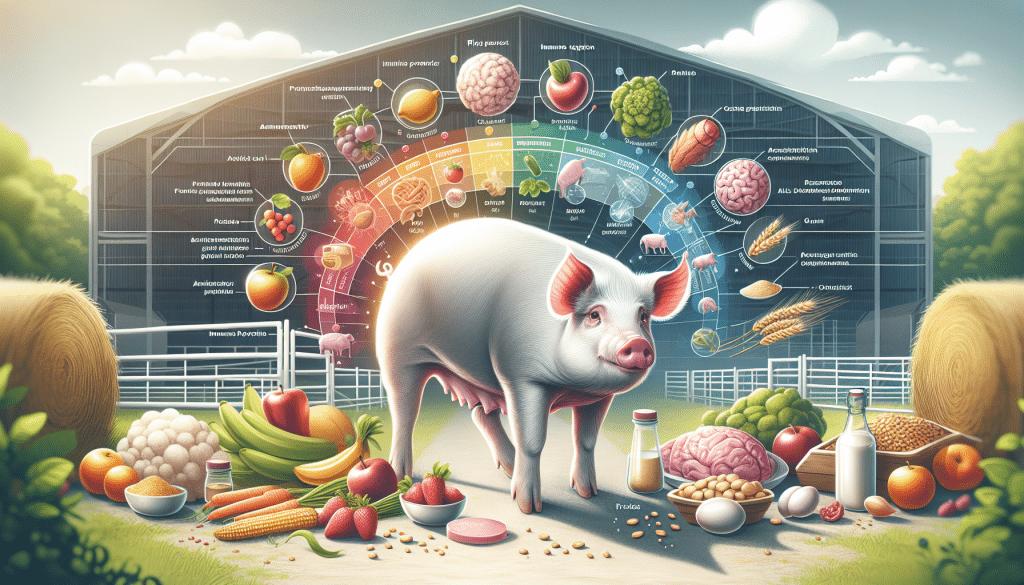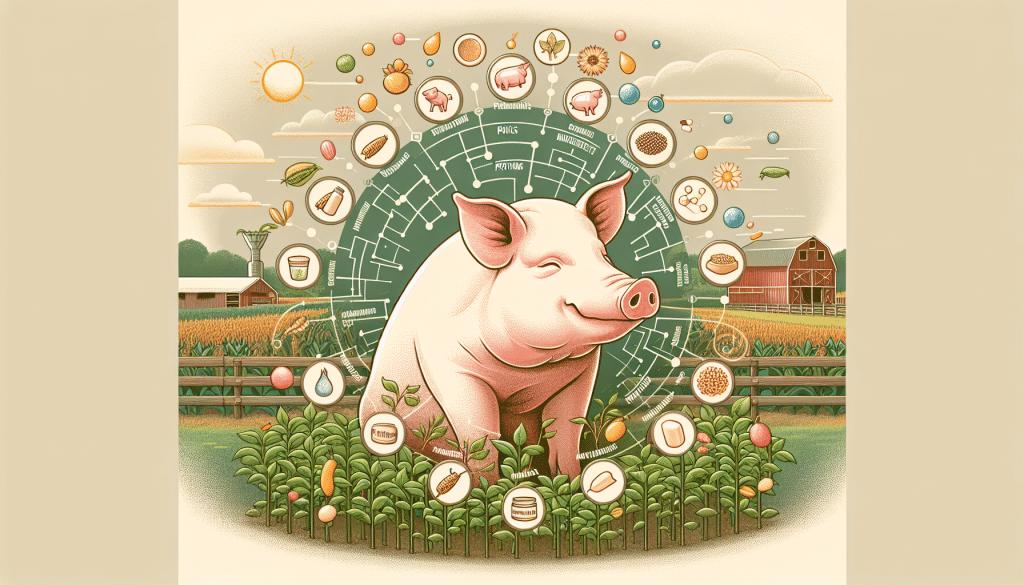In your quest to ensure optimal pig health, it is crucial to prioritize proper nutrition. The food you provide plays a significant role in maintaining their overall well-being and preventing various health issues. By understanding the essential nutrients required by pigs and tailoring their diet accordingly, you can pave the way for improved growth, enhanced immune function, and reduced risk of diseases. This article will explore the importance of proper nutrition for pig health and offer valuable insights on how to effectively enhance their dietary intake for optimal results. So, let us delve into the world of pig nutrition and discover the key factors to ensure your pigs thrive.

Understanding the Nutritional Needs of Pigs
Pigs, just like any other animals, have specific nutritional needs to support their growth and development. These needs can vary depending on the age and stage of production of the pig. To ensure that pigs receive adequate nutrition, it is important to provide them with a balanced diet that contains all the essential nutrients they require.
Essential nutrients for pig growth and development
Pigs require a variety of essential nutrients for optimal growth and development. These include carbohydrates, proteins, fats, vitamins, minerals, and water. Carbohydrates, such as grains, provide the necessary energy for pigs to carry out their daily activities. Proteins, which can be derived from sources like soybean meal and fish meal, are essential for muscle development and repair. Fats are a concentrated source of energy and are important for maintaining healthy skin and hair. Vitamins and minerals play crucial roles in various bodily functions, including bone development and immune system function. Water is also essential for proper digestion and overall hydration.
The role of a balanced diet in pig health
A balanced diet is crucial for maintaining overall pig health. Each nutrient plays a unique role in supporting different bodily functions, and an imbalance in any of these nutrients can lead to health issues. For example, a diet deficient in protein can result in poor muscle growth and development, while an excess of certain vitamins and minerals can be detrimental to the pig’s health. Providing a balanced diet ensures that pigs receive all the necessary nutrients in appropriate proportions, thus promoting optimal growth and preventing nutrient deficiencies or excesses.
Nutrient requirement variations by age and stage of production
The nutrient requirements of pigs can vary depending on their age and stage of production. For instance, growing pigs have higher energy and protein requirements compared to adult pigs. Lactating sows also have increased nutritional needs to support milk production. It is important to adjust the diet accordingly to meet these specific requirements at each stage of the pig’s life. Failure to provide the appropriate nutrients can result in compromised growth, reproductive issues, or other health problems.
Evaluating Feed Quality and Composition
Feed quality and composition play a significant role in determining the nutritional value of the pig’s diet. It is essential to assess the energy levels, protein content, and vitamin and mineral composition of the feed to ensure its adequacy for the pigs.
Assessing energy levels in pig feed
Energy is a crucial component of pig feed and is necessary for the pig’s daily activities. Energy levels can be assessed by measuring the energy content of the feed, usually expressed in kilocalories (kcal) per kilogram (kg) of feed. High-energy feed is important for supporting growth and maintenance, but it should be balanced with the other nutrients to prevent excessive weight gain or inadequate nutrient intake.
The importance of protein: sources and balance
Protein is a fundamental nutrient for pigs as it is essential for muscle development, enzyme production, and other physiological functions. Feeds that are high in protein can be derived from sources like soybean meal, fish meal, or other plant and animal products. It is important to provide a balanced protein source to ensure that all essential amino acids are present in the diet. Amino acids that pigs cannot synthesize themselves, known as essential amino acids, must be supplied through their diet to meet their growth and development needs.
Vitamins and minerals critical for pig health
Vitamins and minerals are micronutrients that are essential for various physiological processes in pigs. Vitamins, such as vitamin A, vitamin D, and vitamin E, are involved in vision, bone development, and immune function, respectively. Minerals, including calcium, phosphorus, and iron, are essential for bone health, energy metabolism, and oxygen transport. It is important to provide a diverse range of vitamins and minerals to ensure that pigs receive all the necessary micronutrients for optimal health and growth.

Impact of Nutrition on Immune System Function
Proper nutrition plays a critical role in boosting the immune system of pigs and enhancing their ability to fight off diseases. Implementing nutritional strategies that support immune system function can contribute to improved pig health and welfare.
Nutritional strategies for enhancing disease resistance
Certain nutrients and dietary components can have a positive impact on the pig’s immune system, making it more resilient to diseases. For example, adding specific herbs or botanical extracts to the diet, such as oregano or garlic, may have antimicrobial properties that can help to prevent the growth of harmful bacteria in the pig’s gut. Including immune-boosting supplements, such as beta-glucans or nucleotides, in the diet can also support the pig’s immune response.
The role of antioxidants and other immune-boosting nutrients
Antioxidants, such as vitamin C and vitamin E, play a crucial role in strengthening the pig’s immune system. These compounds help to neutralize harmful free radicals and protect the cells from oxidative stress. Other immune-boosting nutrients, such as selenium and zinc, also contribute to the pig’s overall immune function. Including these nutrients in the diet can help to enhance the pig’s ability to fight off infections and diseases.
Prebiotics and probiotics in pig diets
In recent years, there has been growing interest in the use of prebiotics and probiotics in pig nutrition. Prebiotics are non-digestible fibers that promote the growth of beneficial bacteria in the pig’s gut, while probiotics are live microorganisms that provide health benefits when consumed in adequate amounts. Both prebiotics and probiotics can positively influence the pig’s gut health and immune function. Including these components in the pig’s diet can help to improve digestion, nutrient absorption, and overall immune system function.
Addressing Specific Health Issues with Nutrition
Nutrition can be used as a tool to address and manage specific health issues that may arise in pigs, including gastrointestinal health, reproductive health, and obesity.
Nutritional approaches to gastrointestinal health
Gastrointestinal health is crucial for pigs to efficiently digest and absorb nutrients from their diet. Imbalances in the gut microbiota or inflammation in the gastrointestinal tract can lead to digestive issues and poor nutrient utilization. Including fermentable fibers, such as beet pulp or chicory root, in the pig’s diet can promote the growth of beneficial bacteria in the gut and support overall gut health. Additionally, providing a balanced diet with appropriate levels of fiber, fat, and protein can help minimize the risk of gastrointestinal disorders.
Managing reproductive health through diet
Proper nutrition is essential for maintaining optimal reproductive health in pigs. Nutrient deficiencies or imbalances can negatively impact fertility, litter size, and piglet survival rates. Providing sows and boars with a balanced diet that meets their specific nutrient requirements is crucial for reproductive success. Supplementing with essential fatty acids, such as omega-3 and omega-6, can also support reproductive health and enhance embryo development.
Preventing obesity and associated health problems in pigs
Obesity can lead to a range of health problems in pigs, including cardiovascular disease and joint issues. Managing the pig’s body condition through proper nutrition and feeding practices is crucial in preventing obesity. This can be achieved by providing a balanced diet that meets the pig’s energy needs while preventing excessive weight gain. Regular monitoring of the pig’s body condition score can help to identify any potential weight issues and allow for adjustments in the diet to maintain an optimal weight.

Role of Water in Pig Nutrition
Water is often an overlooked but crucial component of pig nutrition. Ensuring that pigs have access to clean, fresh water is essential for their health and wellbeing.
Ensuring access to clean, fresh water
Pigs require a constant supply of clean, fresh water for proper hydration and bodily functions. Water quality should be regularly monitored to ensure that it is free from contaminants. Water sources should be clean and easily accessible to all pigs in the herd to promote adequate water intake.
Water intake recommendations for optimal health
The water requirements of pigs can vary depending on factors such as age, size, and environmental conditions. Providing an adequate water supply is vital to prevent dehydration and ensure optimal growth and performance. It is generally recommended to provide pigs with unrestricted access to water, allowing them to drink freely throughout the day.
Interaction of water with nutrient absorption
Water plays a crucial role in nutrient absorption and digestion. It helps to dissolve and transport nutrients throughout the pig’s body, allowing for efficient utilization of the diet. Adequate water intake is essential to support proper digestion and absorption of nutrients, ensuring that the pig receives the maximum benefit from its diet.
Formulating Diets for Different Breeds and Sizes
The nutritional requirements of pigs can vary depending on their breed and size. Proper diet formulation is crucial to meet the specific needs of different pig breeds and sizes.
Breed-specific nutritional requirements
Different pig breeds may have distinct nutritional requirements based on their genetic makeup and specific growth characteristics. For example, some breeds may have higher energy requirements for improved lean muscle development, while others may require different nutrient ratios to support their unique physiological functions. Understanding the specific nutritional needs of different pig breeds is essential for proper diet formulation.
Adjusting diets for mini pigs versus commercial breeds
Miniature pig breeds, such as pot-bellied pigs or teacup pigs, require different dietary considerations compared to commercial pig breeds. Mini pigs tend to have lower energy requirements and prone to obesity, so their diets need to be carefully controlled to prevent excessive weight gain. Adjusting the diet with lower energy density and increased fiber content can help manage their weight more effectively.
Considering size and growth rate in diet formulation
The size and growth rate of pigs should also be taken into account when formulating diets. Larger pigs generally have higher energy and protein requirements compared to smaller pigs. Diets should be adjusted accordingly to meet the specific needs of each pig’s size and growth stage. Regular monitoring of the pig’s weight and growth rate can help to ensure that the diet is appropriately balanced to support optimal growth and development.

Nutritional Supplements for Enhancing Pig Health
In certain situations, dietary supplements may be beneficial in enhancing pig health and performance. However, it is important to carefully consider when and how to use these supplements to maximize their benefits and minimize potential risks.
When to consider using dietary supplements
Dietary supplements can be considered when there is a specific nutritional deficiency or when additional support is needed to enhance pig health. For example, if there is a documented deficiency in a specific vitamin or mineral, supplementing with that nutrient may be necessary. Additionally, certain supplements, such as probiotics or omega-3 fatty acids, may be used to promote specific health benefits. It is important to consult with a veterinarian or animal nutritionist to determine when and how to use dietary supplements effectively.
Types of supplements commonly used in pig nutrition
A variety of nutritional supplements can be used in pig nutrition to address different health issues or enhance specific functions. Some common supplements include vitamins, minerals, probiotics, prebiotics, amino acids, and herbal extracts. These supplements can be incorporated into the pig’s diet either in the form of premixes or individual additives. The choice of supplements will depend on the specific needs of the pigs and the desired outcomes.
Risks and benefits of supplementation
While supplementation can have benefits, it is important to be aware of the potential risks associated with their use. Excessive supplementation can lead to nutrient imbalances, toxicity, or undesirable side effects. It is essential to carefully evaluate the pig’s specific nutritional needs and consult with professionals to determine the appropriate dosage and duration for using dietary supplements. Regular monitoring and evaluation of the pig’s health and performance can help to ensure that the supplementation is effective and not causing any adverse effects.
Managing Feed Intake and Feeding Behavior
Monitoring feed intake and managing feeding behavior are important aspects of pig nutrition that can impact the overall health and wellbeing of the animals.
Monitoring feed intake for signs of health issues
Regular monitoring of feed intake is crucial for identifying any potential health issues in pigs. Sudden changes in feed intake, either a decrease or increase, can be indicative of underlying health problems. Reduced feed intake may indicate digestive issues, while excessive feed intake may be a sign of nutritional imbalances. Monitoring feed intake allows for early detection and intervention, minimizing the risk of serious health issues.
Feeding routines that promote health and wellbeing
Establishing appropriate feeding routines can contribute to the overall health and wellbeing of pigs. Providing regular and consistent access to feed helps to maintain a stable gut environment and prevent stress-related issues. Avoiding sudden changes in diet and maintaining a consistent feeding schedule can also help to promote healthy digestion and nutrient absorption.
The effects of feed palatability on consumption
Feed palatability, or the taste and aroma of the feed, can significantly impact the pig’s consumption. Pigs have individual preferences for certain flavors or textures, and feed that is unappetizing may result in reduced intake. Ensuring that the feed is palatable and appealing to the pigs can help to promote adequate nutrient intake and prevent potential nutrient deficiencies.

Strategic Use of Nutrition in Disease Management and Prevention
Nutrition plays a strategic role in managing and preventing common pig diseases. By making appropriate modifications to the pig’s diet, it is possible to support their immune system and reduce the risk of disease occurrence.
Diet modifications in response to common pig diseases
Certain diseases, such as diarrhea or respiratory infections, can affect the pig’s nutrient absorption and overall health. Modifying the pig’s diet by including specific nutrients or supplements can help to support their immune system and reduce the severity of the disease. For example, including specific amino acids or antioxidants in the diet may enhance the pig’s ability to fight off infections.
Nutritional strategies for parasitic control
Parasitic infections can have a negative impact on the pig’s health and productivity. Implementing nutritional strategies to promote the pig’s resistance to parasites can be beneficial in reducing their prevalence. Including certain herbs or botanical extracts with natural anti-parasitic properties in the diet can help to alleviate parasitic burden. Additionally, providing a balanced diet with adequate levels of essential nutrients can support the pig’s overall immune function, enhancing their ability to resist parasites.
Preventive nutrition: vaccines and dietary components
In addition to vaccination programs, the pig’s diet can also play a role in preventing disease occurrence. Including certain dietary components, such as specific vitamins or minerals, can support the pig’s immune system and improve their response to vaccines. Providing an optimized diet with appropriate levels of essential nutrients can help to enhance the pig’s immune function and improve the effectiveness of vaccinations.
Measuring the Success of Dietary Interventions
Measuring and evaluating the success of dietary interventions is essential to ensure that the pig’s nutritional needs are being met and the desired outcomes are achieved.
Key performance indicators of pig health
Monitoring key performance indicators can provide valuable insights into the pig’s health and performance. Key performance indicators may include factors such as average daily gain, feed conversion ratio, mortality rate, and reproductive performance. Regularly tracking and analyzing these indicators can help to identify any areas that require improvement or intervention.
Utilizing feedback loops to adjust nutritional plans
Feedback loops are essential for adjusting and fine-tuning nutritional plans to ensure optimal pig health. Regular monitoring and evaluation of the pig’s performance, as well as feedback from professionals such as veterinarians or nutritionists, allow for the identification of any necessary adjustments in the pig’s diet. Utilizing feedback loops helps to optimize nutrient intake and ensure that the dietary intervention is effective.
Case studies of successful nutritional interventions
Case studies showcasing successful nutritional interventions can provide valuable insights and practical examples of how proper nutrition can improve pig health. These case studies can demonstrate the impact of specific dietary modifications or the use of supplements in addressing various health issues or enhancing production performance. By examining successful interventions, it becomes possible to apply similar practices and strategies to improve the health and welfare of pigs.
In conclusion, understanding the nutritional needs of pigs is crucial for promoting their health and wellbeing. Providing a balanced diet that meets the pig’s specific requirements at each stage of their life is essential. Evaluating feed quality, managing feed intake, and utilizing nutritional supplements strategically can further enhance pig health. By incorporating proper nutrition into pig management practices, pig farmers can improve the overall health, productivity, and quality of their herds.




